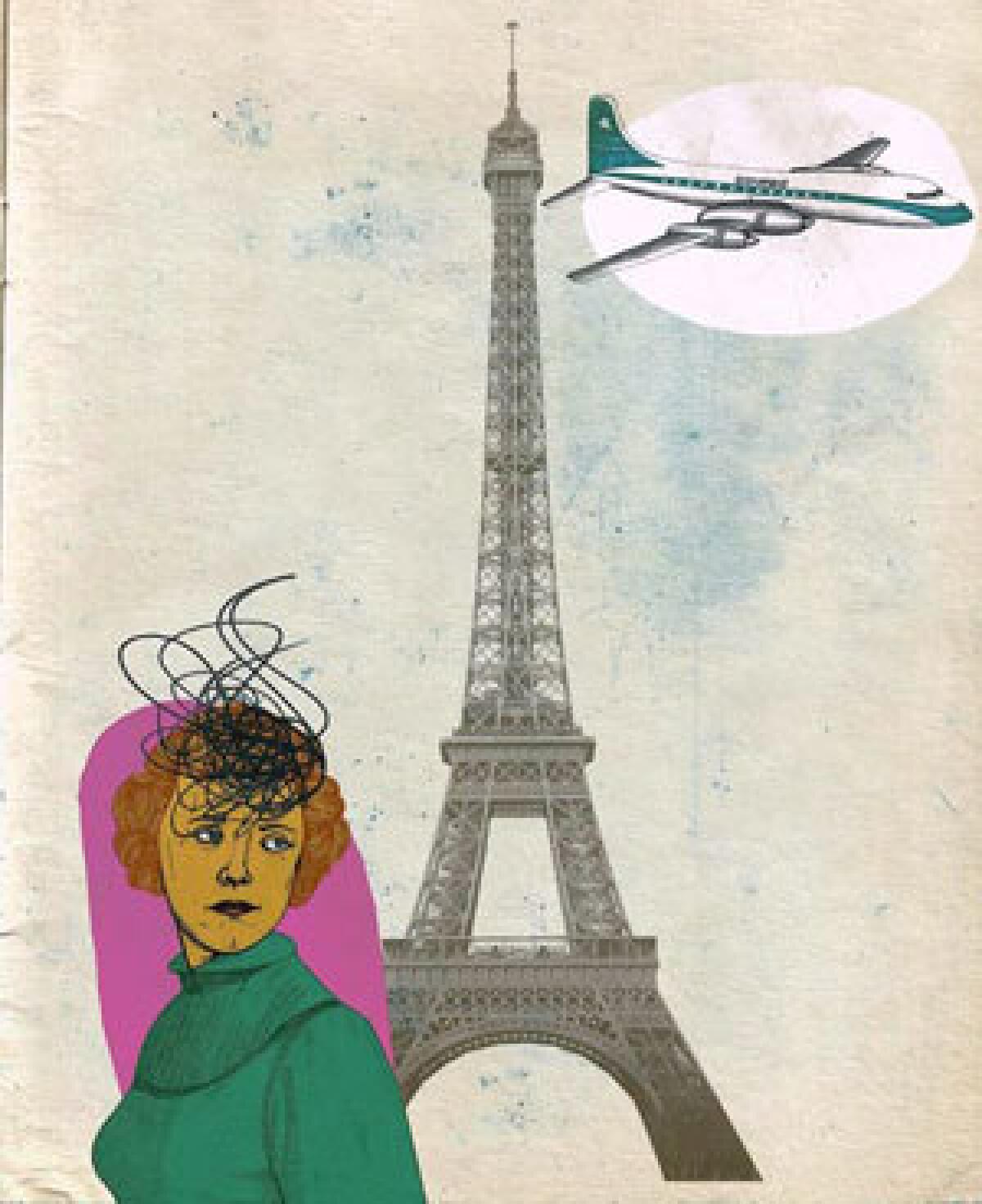Book review: ‘Foreign Bodies’ by Cynthia Ozick

- Share via
Foreign Bodies
A Novel
Cynthia Ozick
Houghton Mifflin Harcourt: 256 pp., $26
Cynthia Ozick’s sixth novel, “Foreign Bodies,” is a piece of literary sleight of hand: It is modeled on Henry James’ 1903 novel, “The Ambassadors,” the story of an American who travels to Paris in pursuit of his patron’s wayward son only to find himself enthralled by the city’s sophistication. “Foreign Bodies,” though, is neither homage nor update; it is instead a counterpoint. Ozick may consider James an inspiration — she has invoked him often, in both her essays and her fiction — but this novel is a mirror image, James’ story turned around.
FOR THE RECORD:
“Foreign Bodies”: A review of Cynthia Ozick’s novel “Foreign Bodies” Nov. 7 cited a passage from the book and said it reflected the thoughts of the character Lili. The passage, “She recognized him as someone she had missed; misjudged; passed over. And she had inflicted on him a pitiless blight,” described the thoughts of the character Bea Nightingale about her nephew Julian. —
The central character here, the middle-aged Bea Nightingale, is sent by her brother to Paris to retrieve her nephew Julian from a bohemian idyll. Taking place in the early 1950s, however, “Foreign Bodies” offers not a sophisticated Europe but a devastated one. The Paris that Bea discovers is exhausted, overrun with refugees, shattered by the after-effects of the war. It is the epitome of the Old World that Julian’s father, Marvin, a California aeronautics designer, has spent his life trying to put behind him, and Bea’s misadventures highlight the tensions that motivate this novel, between history and progress, the elusive promises of the future and the relentless undercurrents of the past.
This is vintage Ozick; she is, perhaps, our most classical contemporary novelist, with a strong sense of literary heritage. Her 2004 novel, “Heir to the Glimmering World,” juxtaposes a family of Jewish refugees from Nazi Germany with their unlikely benefactor, a character based on Christopher Robin Milne, and the title story of her 2008 collection “Dictation” casts Joseph Conrad and James as opposites in the conflict between intellect and emotion.
Such efforts are subtle, using fiction not to instruct but to play with literature. Yet lest this strategy seem just a postmodern gimmick, Ozick has something more in mind. “As modernism sinks in, or fades out — as it recedes into a kind of latter-day archaism, Cubism turned antiquated, the old literary avant-garde looking convincingly moth-eaten — certain writers become easier to live with,” she opens the 1993 essay “What Henry James Knew.” The idea, then, is to consider literature as a métier, in which stories find their meaning in a larger conversation that exists not only between characters but also between books.
Yet, unlike “Heir to the Glimmering World” or “Dictation,” “Foreign Bodies” never seems to come to fruition. Partly, that’s due to the nature of its construction — even though you don’t need to have read “The Ambassadors” to understand it; there are no overt references to the novel, other than a few puns and one-liners, a comment about “all this ambassadorial traffic” in an early piece of dialogue, or a recollection of Bea’s father reading “George Meredith and Henry James.”
Instead, Ozick examines the pull of family and obligation, the things we do for loved ones even when we don’t know why. Bea has been estranged from her brother for decades as “Foreign Bodies” opens; he is as alien to her as the boulevards of Paris. Driven, pushy, overbearing, he has spent a lifetime distancing himself from his Jewish immigrant roots, marrying into society, moving to California, framing an existence around the assertion of his own power.
Initially, Bea resists his demands for help, but all too soon she finds herself under his sway. Their back-and-forth, evoked in series of letters that run throughout the novel, allows Ozick to explore the tenuous yet tenacious nature of the sibling bond. Similar issues emerge in the relationship between Julian and his sister, Iris, who also runs away to Paris; they are devoted to each other in a way that Bea and Marvin never were.
Meanwhile, Ozick seeks to frame a contrast between postwar Europe and the New World. “The boy was absurd. The boy was contemptible. … one of those know-nothing Americans besotted with old tattered visions of Sartre, that dolt, that foul Communist, that abettor of the worst,” a refugee named Lili thinks of Julian after meeting him. “Paris was infested with these imitation baby Sartres and Gides sitting in cafés over their inky manuscripts.” Yet, playing against expectation, Lili marries him.
For Ozick, the couple represents the integration of a callow optimism — that of the American youth, “literary tourists on a long visit” — with the more vivid desperation of “Europeans whom Europe had set upon; they wore Europe’s tattoo.” Still, much like Bea and Marvin, who slip in and out of each other’s spheres of influence without coming to an accommodation, such sensibilities are irreconcilable.
That’s the fundamental problem with “Foreign Bodies”; it doesn’t quite know what it is. On the one hand, it is a family drama (more a comedy of manners, actually) in which characters move around like choreographed dancers. On the other, it aspires to a larger social statement, a reflection of cultural flux. Ozick has the details right — Julian contributes to the legendary journal Merlin; Bea’s ex-husband Leo, a composer, has his ambitions thwarted in Hollywood — but the book remains curiously unsatisfying.
In a certain sense, this brings us back to “The Ambassadors,” which, beneath the surface though it may be, constricts the flow of the narrative. Even more, it’s a matter of Ozick’s intention, which seems more schematic than engaged. I’m not sure how else to say it, but she appears to be writing at a distance; we see the machinery, the interplay between characters, yet we never really have the sense that she has put her weight down.
“She recognized him as someone she had missed; misjudged; passed over,” Lili thinks of Julian in the closing pages. “And she had inflicted on him a pitiless blight.” Such depth, one imagines, is what Ozick is after, but unfortunately, it comes too little too late.
More to Read
The biggest entertainment stories
Get our big stories about Hollywood, film, television, music, arts, culture and more right in your inbox as soon as they publish.
You may occasionally receive promotional content from the Los Angeles Times.











